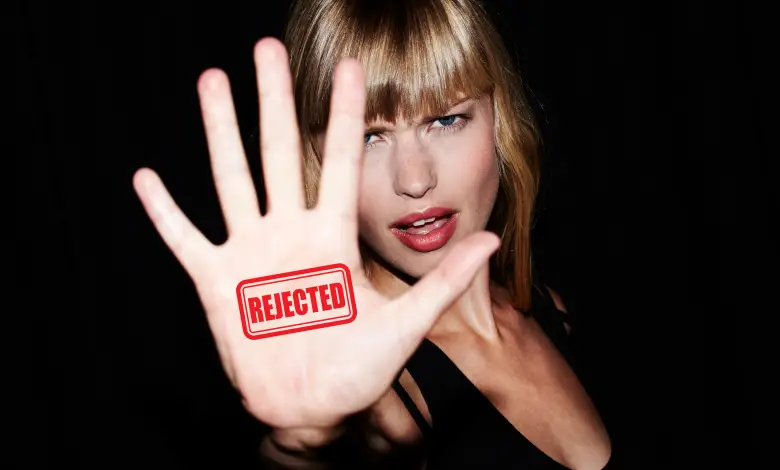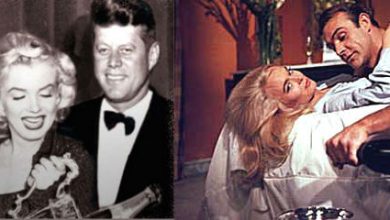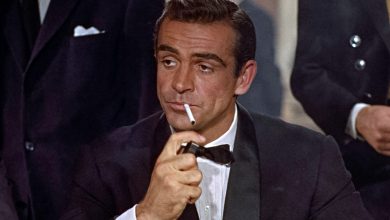
The James Bond film franchise has captivated audiences for decades, not only with its thrilling action and suave spy protagonist but also with its unforgettable theme songs. While many iconic Bond themes have graced the big screen, there is a lesser-known side to the Bond music legacy. Numerous acclaimed artists, from Johnny Cash and Blondie to Pet Shop Boys, have had their Bond themes rejected. These rejected songs hold a fascinating place in the Bond universe, offering insights into the creative process and the intricate decision-making behind the final selection.
In this article, we delve into the world of rejected James Bond themes, uncovering the stories behind each artist’s journey to contribute their unique sound to the iconic franchise. From Johnny Cash’s country-infused ‘Thunderball’ to Blondie’s pop-rock anthem ‘For Your Eyes Only,’ we explore the intriguing paths these artists traveled in their quest to leave their mark on the Bond musical landscape. Join us as we shine a spotlight on the rejected James Bond themes that almost were, and discover the captivating tales behind these untold chapters of Bond music history.
Key Takeaways
- Rejected James Bond themes offer a fascinating glimpse into the creative process and decision-making behind the iconic franchise’s soundtrack.
- Legendary artists like Johnny Cash, Blondie, and Pet Shop Boys had their Bond themes rejected, showcasing the wide range of musical styles considered for the films.
- Legal disputes, studio preferences, and alignment with the film’s vision were some of the factors that influenced the rejection of certain Bond themes.
- Despite not making it to the final films, the rejected Bond themes by these artists hold a special place in music history and demonstrate their versatility and artistic contributions to the Bond legacy.
Johnny Cash – ‘Thunderball’
One surprising contender for a Bond theme was the legendary country musician, Johnny Cash. Imagine a world where Johnny Cash’s deep, resonant voice set the tone for a Bond film. However, the producers ultimately chose Tom Jones’s bombastic rendition of “Thunderball,” which perfectly captured the essence of a classic Bond theme.

Dionne Warwick / Shirley Bassey – ‘Mr Kiss Kiss Bang Bang’ (Thunderball)
Before Tom Jones was selected for “Thunderball,” the original title song was named “Mr Kiss Kiss Bang Bang” and was intended to be sung by Dionne Warwick. However, concerns arose about Warwick’s delivery, leading to a re-recording by Shirley Bassey. Unfortunately, both versions were not released until the 1990s due to legal disputes. Ultimately, the song was removed because the studio requested that the theme song include the film’s title in its lyrics.

Julie Rogers / Lorraine Chandler – ‘You Only Live Twice’
Nancy Sinatra’s rendition of “You Only Live Twice” is now considered a Bond classic. However, before Sinatra, English singer Julie Rogers was approached to perform the Oriental-sounding theme song. Additionally, soul singer Lorraine Chandler recorded a Shirley Bassey-style version that offered a unique twist. Ultimately, John Barry, the renowned Bond composer, felt that the selected theme perfectly captured the energy and mystique required for the movie.

Alice Cooper – ‘The Man with the Golden Gun’
As the Bond franchise transitioned into the glam rock era, Alice Cooper came close to securing the title track for Roger Moore’s “The Man with the Golden Gun.” However, the producers decided to go with Lulu’s rendition instead. Alice Cooper later expressed his discontent with the final product, stating his dislike for the chosen theme. Nonetheless, his near-involvement adds an interesting footnote to the Bond music history.

Blondie – ‘For Your Eyes Only’
The American band Blondie was initially approached to write and perform the theme song for Roger Moore’s “For Your Eyes Only.” However, their song was rejected when the studio opted for Sheena Easton’s rendition. Blondie eventually released their theme song on their 1982 album, titled “The Hunter,” showcasing their unique take on the Bond musical style.

Pet Shop Boys – ‘The Living Daylights’
Timothy Dalton’s first Bond movie, “The Living Daylights,” featured A-ha’s popular title track. However, the Pet Shop Boys also recorded a song for the film that was ultimately not chosen. They later reworked the song into “This Must Be the Place I Waited Years to Leave” for their album “Behaviour” in 1990, showcasing their versatility as musicians.

Ace of Base – ‘GoldenEye’
In a truly ’90s twist, Swedish pop group Ace of Base nearly had their shot at a Bond theme with “GoldenEye.” However, Tina Turner’s soulful rendition was ultimately chosen for the film. Ace of Base later released their version with slightly revised lyrics as “The Juvenile” on their album “Da Capo,” providing fans with a glimpse of what might have been.

Pulp – ‘Tomorrow Never Dies’
The theme selection for Pierce Brosnan’s second Bond film, “Tomorrow Never Dies,” went through several iterations. Initially, a song called “Tomorrow Never Dies,” written by the film’s composer David Arnold and performed by KD Lang, was intended to be the theme tune. However, Sheryl Crow’s song was eventually chosen, and Lang’s version was relegated to the end credits, renamed “Surrender.” Alongside KD Lang, producers considered tracks from 12 other artists, including Pulp, The Cardigans, Saint Etienne, and Swan Lee.

Shirley Bassey – ‘No Good About Goodbye’ (Quantum of Solace)
Composer David Arnold wrote the track “No Good About Goodbye” for the film “Quantum of Solace,” and although it was not officially a rejected Bond theme, it holds an interesting connection. The opening strings of the song are clearly derived from Arnold’s score for the film, and it even includes the word “solace” in its lyrics. Arnold later explained that “No Good About Goodbye” was initially an homage he was working on, which later found its way onto Dame Shirley Bassey’s 2009 album, “The Performance.”

Muse – ‘Supremacy’ (Skyfall)
The British band Muse made a valiant effort to secure their Bond-esque song “Supremacy” as the theme tune for “Skyfall.” Although they were not chosen, their track did find a place in the first “Skyfall” trailer, allowing audiences to experience their dramatic and cinematic sound within the Bond universe.

Radiohead – ‘Spectre’
Radiohead submitted their haunting track “Spectre” for the film of the same name, but it was ultimately deemed too melancholic for the title sequence. Instead, Sam Smith’s “Writing’s on the Wall” was selected. Director Sam Mendes initially considered using Radiohead’s song in another part of the film but ultimately decided against it, leading to an unfortunate missed opportunity. Despite its rejection, Radiohead’s “Spectre” remains a captivating testament to the band’s musical prowess.

FAQ
1. What was the reason Johnny Cash’s Bond theme, ‘Thunderball,’ was rejected?
Johnny Cash’s Bond theme, ‘Thunderball,’ was not chosen as the official theme for the film. Despite Cash’s legendary status as a country musician, the producers opted for Tom Jones’s bombastic rendition instead. The decision was likely influenced by the desire to capture the grandeur and larger-than-life quality that Jones’s powerful vocals brought to the song. Cash’s version may have possessed a unique charm, but ultimately, the producers believed that Jones’s interpretation aligned better with the iconic Bond sound.
2. Why were Dionne Warwick and Shirley Bassey’s versions of ‘Mr Kiss Kiss Bang Bang’ not released until the 1990s?
Dionne Warwick and Shirley Bassey both recorded versions of ‘Mr Kiss Kiss Bang Bang’ for the Bond film “Thunderball.” However, neither version was released until the 1990s due to legal disputes and complications surrounding the song’s usage. The film’s studio requested that the theme song include the film’s title in its lyrics, which led to the removal of ‘Mr Kiss Kiss Bang Bang’ from the final soundtrack. Shirley Bassey, who was initially supposed to sing the end title version, sued the producers, resulting in both versions being withheld from release until much later.
3. Why did Julie Rogers and Lorraine Chandler’s versions of ‘You Only Live Twice’ not make it to the final film?
Although Nancy Sinatra’s rendition of ‘You Only Live Twice’ is now considered a Bond classic, it’s interesting to note that Julie Rogers and Lorraine Chandler were initially considered for the song. Rogers, an English singer, was asked to perform the Oriental-sounding track, while Chandler recorded a Shirley Bassey-style version that offered a unique twist. Ultimately, John Barry, the renowned Bond composer, stated that the selected theme perfectly captured the energy and mystique required for the film. The producers believed that Sinatra’s interpretation best suited the movie’s vision, leading to the exclusion of Rogers and Chandler’s versions.
4. What made Alice Cooper’s Bond theme, ‘The Man with the Golden Gun,’ disliked by John Barry?
Alice Cooper’s Bond theme, ‘The Man with the Golden Gun,’ was ultimately rejected in favor of Lulu’s rendition. John Barry, the esteemed Bond composer, openly expressed his dislike for Cooper’s final product, stating that it didn’t resonate with him. Barry believed that the song lacked the necessary elements to make it work effectively for the movie, although he didn’t provide specific details about what those elements were. While Cooper’s theme didn’t align with Barry’s vision, its rejection serves as an intriguing footnote in the Bond music legacy.
5. Why was Blondie’s ‘For Your Eyes Only’ rejected, and what was their response?
Blondie was initially approached to write and perform the theme song for Roger Moore’s Bond movie, ‘For Your Eyes Only.’ However, the band refused to record the chosen song, which eventually became Sheena Easton’s rendition. The rejection stemmed from Blondie’s disagreement with the studio’s decision, as they preferred to have creative control over the song they would contribute to the film. As a result, Blondie released their own song on their album ‘The Hunter’ in 1982, showcasing their musical talents in a different context.
6. Why wasn’t Pet Shop Boys’ Bond theme, ‘The Living Daylights,’ chosen for Timothy Dalton’s film?
Pet Shop Boys recorded a song for Timothy Dalton’s first Bond movie, ‘The Living Daylights,’ but it was not chosen as the official theme. The decision likely came down to a combination of factors, including the studio’s vision for the film’s soundtrack and the creative direction they wanted to take. The chosen theme, performed by A-ha, resonated better with the overall tone and style of the movie. However, Pet Shop Boys later reworked their song into ‘This Must Be the Place I Waited Years to Leave,’ demonstrating their adaptability as musicians.
7. Why did Ace of Base’s Bond theme, ‘GoldenEye,’ not make it to the final film?
Ace of Base’s Bond theme, ‘GoldenEye,’ came close to becoming the official theme for the film. However, Tina Turner’s rendition was ultimately chosen for the movie. The decision likely came down to the studio’s preference for Turner’s soulful vocals and the overall fit of her version with the film’s atmosphere. Ace of Base’s track, although not selected, was released with revised lyrics as ‘The Juvenile’ on their album ‘Da Capo.’ While the band missed out on the Bond opportunity, their song showcased their ’90s pop sound in a different context.
8. Why did Sheryl Crow’s ‘Tomorrow Never Dies’ replace KD Lang’s intended theme?
Sheryl Crow’s song, ‘Tomorrow Never Dies,’ was chosen as the theme for Pierce Brosnan’s second Bond film. Originally, a different track written by the film’s composer, David Arnold, and performed by KD Lang, was intended to be the theme tune. However, the producers felt that Crow’s song better captured the essence of the film and aligned with their vision for the opening sequence. Lang’s version, titled ‘Surrender,’ was instead used in the end credits. The selection process involved considering tracks from various artists, including Pulp, The Cardigans, Saint Etienne, and Swan Lee.
9. Why was Shirley Bassey’s ‘No Good About Goodbye’ not considered a rejected Bond theme?
Composer David Arnold wrote ‘No Good About Goodbye,’ a track closely associated with the Bond film “Quantum of Solace.” While the song’s opening strings bear a resemblance to Arnold’s score for the film, it was not officially considered a rejected Bond theme. Arnold clarified that ‘No Good About Goodbye’ was initially an homage he was working on and later finished for Shirley Bassey’s 2009 album, “The Performance.” Despite its connection to the Bond franchise, the song wasn’t intended to serve as the official theme.
10. Why did Radiohead’s ‘Spectre’ not make it to the title sequence for the film?
Radiohead submitted ‘Spectre’ as a potential theme for the Bond film of the same name. However, the producers felt that the song’s melancholic nature didn’t align with their vision for the title sequence. Instead, they chose Sam Smith’s ‘Writing’s on the Wall’ as the official theme. Although director Sam Mendes attempted to find another place for Radiohead’s song within the film, he ultimately decided against it, believing it would be too distracting. Despite its rejection, Radiohead’s ‘Spectre’ stands as a haunting testament to the band’s creative prowess, even if it wasn’t used in the final cut.
Conclusion
The rejected James Bond themes by Johnny Cash, Blondie, Pet Shop Boys, and other iconic artists serve as a testament to the depth and diversity of talent considered for the franchise’s iconic soundtracks. While these songs may not have made it to the silver screen, their existence adds layers of intrigue and excitement to the Bond music legacy. The stories behind these rejected themes highlight the complex decision-making process involved in selecting the perfect Bond song and shed light on the creative vision that ultimately shapes each film.
As we celebrate the renowned Bond themes that have become cultural touchstones, let us also appreciate the rejected themes that pushed artistic boundaries and challenged conventions. The music world is richer for these rejected gems, and they serve as a reminder of the vast pool of talent that has contributed to the allure and enduring popularity of the James Bond films. So, the next time you find yourself immersed in the iconic sounds of a Bond theme, remember the rejected ones that almost graced the big screen and appreciate the creative journey they undertook.








